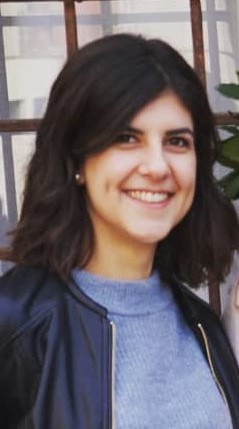
Curriculum
Neuroscience, Technology and Society, XXXVI series
Grant sponsor
Università degli Studi di Padova
Supervisor
Massimo Grassi
Co-supervisor
s
Lamberto Ballan, Giuseppe Sartori (esterno)
Project: Unmasking Lies: Advancements In Deception Detection Techniques
Full text of the dissertation book can be downloaded from: https://www.research.unipd.it/handle/11577/3520743
Abstract: Pursuing truth through the unmasking of deception has consistently engaged the scientific community and the general public. This work delves into the intricate domain of lie detection, integrating various methodologies and theories to provide a comprehensive view of the challenges and potential of studying deceit within contemporary society. This dissertation unfolds across three distinct projects, each focusing on a unique approach to detecting deception in different scenarios: self-report assessment questionnaires, workplace drug testing, and face-to-face investigative interviews. The first project examines using the Term Frequency-Inverse Document Frequency (TF-IDF) index to detect lies within personality questionnaires. Departing from traditional methods that construct comprehensive simulation profiles through control scales, this approach focuses on the detailed analysis of specific responses to identify instances of deceit at the single-item level. The project tests the efficacy of TF-IDF in discerning authentic from fabricated responses, offering a novel analytical tool for forensic psychology. To validate this methodology, three experiments were conducted in "faking good" scenarios, where participants are incentivized to present themselves in an overly positive manner. The results were notably promising: the TF-IDF model effectively distinguished between genuine and counterfeit responses. These findings open new avenues for research in forensic psychology, suggesting that TF-IDF could be a valuable tool for addressing complex challenges like detecting deception in questionnaires at the item level. The second research project offers a preliminary analysis of drug use in workplaces and methods for its detection. The study investigates standard biological drug testing procedures and their legal and ethical implications, as well as the effectiveness of questionnaire-based tests for substance abuse detection, particularly highlighting their limitations in accuracy due to the possibility of deceptive responses. The research emphasizes the need for more innovative methodologies to effectively tackle this increasingly significant workplace safety concern. In response, this project focuses on introducing and validating a methodology based on the kinematic analysis of mouse movements. This method hypothesizes that mouse movements during responses to double-choice questions can reveal behavioral patterns associated with lying. Applied here, the research aims to detect deceptive responses in workplace drug tests through two online experiments, comparing behaviors of drug-using and non-drug-using employees and exploring the potential of this analysis to understand the mental processes involved in generating deceitful responses. The third project delves into identity deception, a specific form of deceit where individuals intentionally conceal their identity, impersonate others, or use counterfeit identity documents. This type of deceit, which poses a serious threat to national security, has been exacerbated in the digital age, facilitating terrorists and criminals in evading security protocols, as evidenced by the use of false identities in terrorist attacks. To address this challenge, this research employed techniques such as the method of unexpected questions, utilizing the difficulty liars face in responding to unforeseen queries, and reaction time analyses in face-to-face investigative interviews. Machine learning analyses in this study offer insights into detecting individuals who lie achieving a remarkable level of accuracy. In conclusion, this dissertation offers a multifaceted perspective on deception detection, highlighting the incorporation of computational tools to augment the accuracy of lie detection in diverse scenarios. This comprehensive exploration not only advances the scientific understanding of deceit but also addresses the practical implications and challenges in detecting lies.